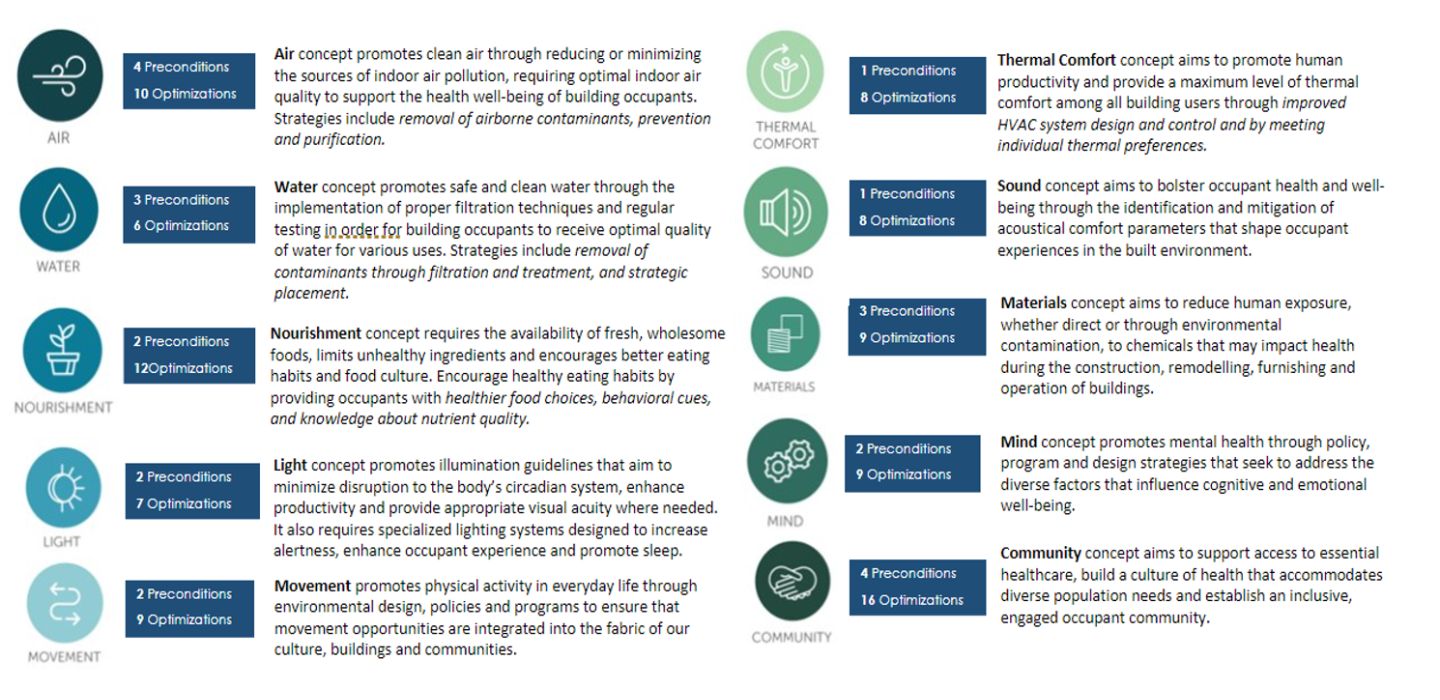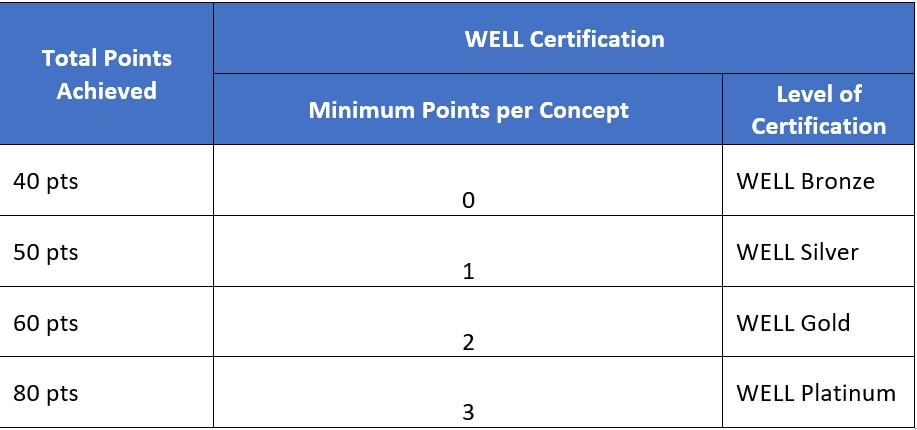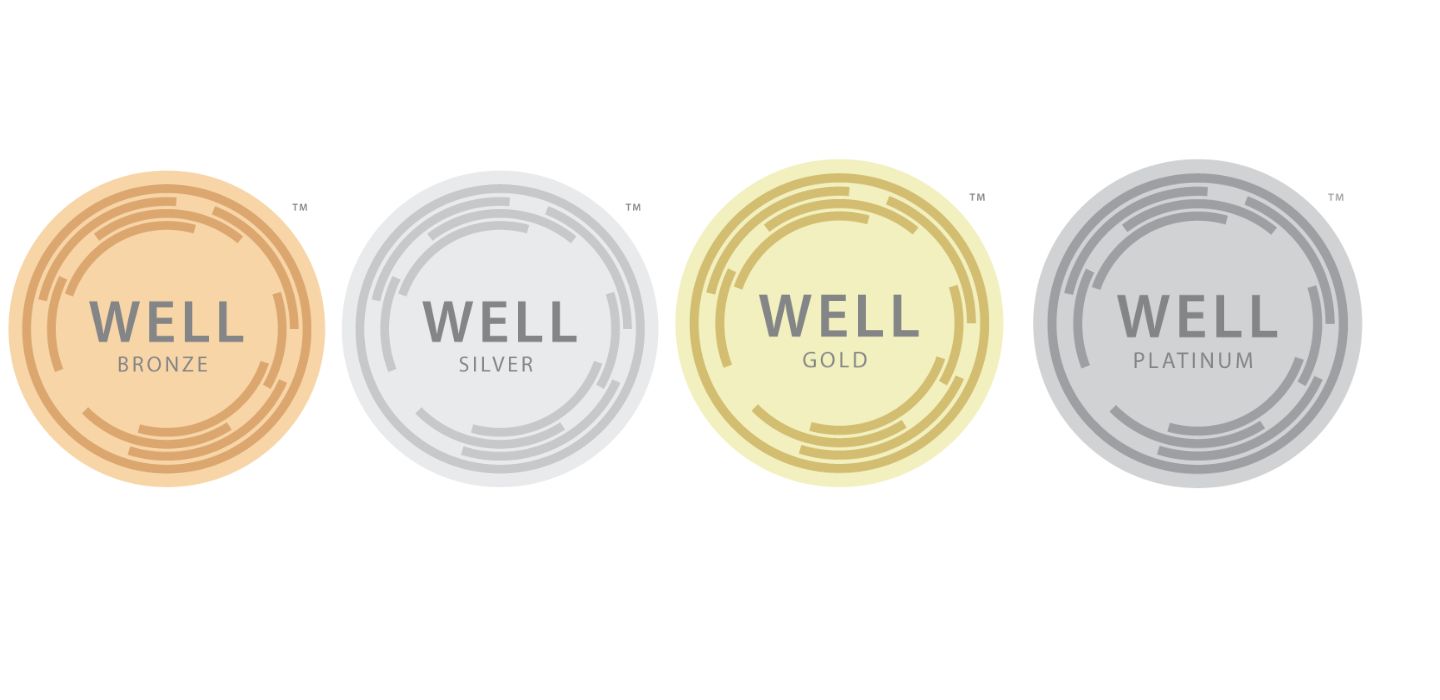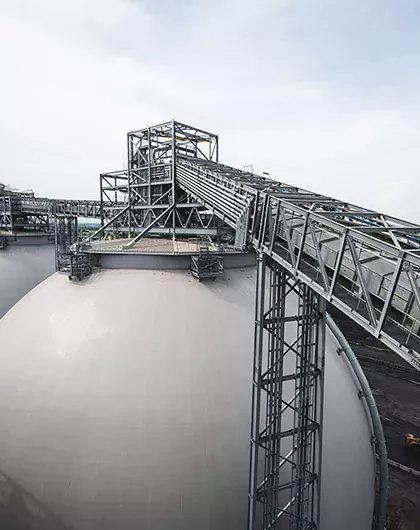Create healthy and productive spaces for your people with our services to help you implement the WELL Building Standard in the built environment.
What is WELL Standard?
The WELL Building Standard transforms how employers view buildings, emphasising the profound impact of design, operations, and behaviours on our health and well-being in various environments. This comprehensive approach, managed by the International WELL Building Institute (IWBI), aims to enhance human health through the built environment, providing guidelines to optimise spaces for a healthier workplace.
With people spending an average of 90% of their time indoors, the quality of buildings significantly affects their health, productivity, and overall well-being. The WELL Building Standard introduces a performance-based certification system that addresses key aspects such as air quality, natural light, and amenities, offering a framework to integrate human sustainability into architectural design and create spaces conducive to health and wellness.
Embracing the WELL Building Standard brings a myriad of benefits, from attracting and retaining talent to enhancing employee performance and overall satisfaction, it applies to new and existing buildings, interiors, and shell structures, with 41 pre-conditions and 59 optimisations for maximum effect in buildings where the owner occupies 90% of the floor area. While primarily for commercial and institutional offices, other spaces can benefit too such as multi residential, retail, education etc.
If you're interested in implementing these principles in your workplace or commercial building project, we're eager to collaborate with you to achieve your objectives and witness tangible improvements in the success of your project.

Talk to our experts

putting health and well-being at the centre of design and construction decisions
WELL Building Standard
The WELL Building Standard is a performance-based system for measuring, certifying, and monitoring features of the built environment that impact human health and well-being. It focuses on aspects like air quality, water quality, nourishment, fitness, and comfort in buildings. WELL certification promotes healthier and more sustainable spaces.
WELL Building Standard puts health and well-being at the centre of design and construction decisions. A great emphasis is given on strategies aimed at enhancing people’s health and wellbeing in buildings without neglecting the building sustainability performance and the impact on the environment.
Best practices in design and construction are coupled with robust evidence-based medical and scientific research – harnessing the built environment as a vehicle to support human health and wellbeing.

The WELL Building Standard is a performance-based system for measuring, certifying, and monitoring features of the built environment that impact human health and well-being. It focuses on aspects like air quality, water quality, nourishment, fitness, and comfort in buildings. WELL certification promotes healthier and more sustainable spaces.
WELL Building Standard puts health and well-being at the centre of design and construction decisions. A great emphasis is given on strategies aimed at enhancing people’s health and wellbeing in buildings without neglecting the building sustainability performance and the impact on the environment.
Best practices in design and construction are coupled with robust evidence-based medical and scientific research – harnessing the built environment as a vehicle to support human health and wellbeing.

DESIGNED TO ELEVATE HUMAN HEALTH AND WELL-BEING IN THE DESIGN AND OPERATION OF BUILDINGS
WELL V2

WELL Building Standard v2 is a voluntary certification scheme that operates on a points-based system developed by the International WELL Building Institute (IWBI), designed to elevate human health and well-being in the design and operation of buildings. This standard offers an evidence-based framework to enhance wellness features in both residential and commercial spaces.
Project teams can pursue no more than 12 points per concept and no more than 100 points total across the ten concepts. 10 additional points are available in the Innovation concept (innovative credits). WELL v2 consolidates previous iterations and pilots into a single rating system designed to accommodate all project types and sectors. The system is intended to grow in specificity and specialty over time, adapting to accommodate diverse project types and geographies and in response to new evidence and ever-evolving public health imperatives.
WELL v2 consolidates previous iterations and pilots into a single rating system that is designed to accommodate all project types and sectors. The system is intended to grow in specificity and specialty over time, adapting to accommodate diverse project types and geographies and in response to new evidence and ever-evolving public health imperatives.
WELL Building Standard v2 is a voluntary certification scheme that operates on a points-based system developed by the International WELL Building Institute (IWBI), designed to elevate human health and well-being in the design and operation of buildings. This standard offers an evidence-based framework to enhance wellness features in both residential and commercial spaces.
Project teams can pursue no more than 12 points per concept and no more than 100 points total across the ten concepts. 10 additional points are available in the Innovation concept (innovative credits). WELL v2 consolidates previous iterations and pilots into a single rating system designed to accommodate all project types and sectors. The system is intended to grow in specificity and specialty over time, adapting to accommodate diverse project types and geographies and in response to new evidence and ever-evolving public health imperatives.
WELL v2 consolidates previous iterations and pilots into a single rating system that is designed to accommodate all project types and sectors. The system is intended to grow in specificity and specialty over time, adapting to accommodate diverse project types and geographies and in response to new evidence and ever-evolving public health imperatives.

WELL V2 is founded on the following Principles:

Equitable
Aims to benefit a variety of people, including and especially disadvantaged or vulnerable populations.

Global
Proposes interventions that are feasible, achievable and relevant across many applications throughout the world.

Evidence-based
Draws upon a diverse and rigorous body of research across varying disciplines, validated by a collaborative body of experts, including IWBI advisors.

Technically robust
Defines industry best practice and validates strategies through performance verification and a rigorous third-party verification process.

Customer-focused
Sponsors the success of WELL users through dedicated coaching services, dynamic resources and an intuitive platform for navigating the journey.

Resilient
Keeps pace with advances in research, science, technology and society, continuously improving by integrating new findings.
WELL Building Standard Concepts

WELL Certification Process
Buildings can be awarded WELL certification with Silver, Gold, or Platinum rating (with Platinum being the highest achievement). WELL-certified buildings require recertification every 3 years.
Projects must achieve all preconditions as well as a certain number of points to earn different levels of certification:


Learn More
Want to find out more about how SOCOTEC can support your organisation achieve WELL Building Standards?

Related services







